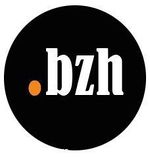.bzh: Difference between revisions
No edit summary |
No edit summary |
||
| Line 9: | Line 9: | ||
|type = [[GeoTLD]] | |type = [[GeoTLD]] | ||
|community = | |community = | ||
|priority = 204 - [[PointBZH]] | |||
|keypeople = [[Matthieu Crédou]] | |keypeople = [[Matthieu Crédou]] | ||
}} | }} | ||
Revision as of 06:38, 23 December 2012
 | |
| Status: | Proposed |
| country: | France |
| Manager: | PointBZH |
| Registry Provider: | AFNIC |
| Type: | GeoTLD |
| More information: | |
.bzh is a proposed TLD for the Breton cultural and linguistic community. The initiative is being made by PointBZH.[1] Membership of the community will be judged by: Residence or Headquarters in Brittany; a significant amount of the content dedicated to Brittany or Breton culture; A significant portion of the website in Breton or Gallo; Membership in the association BZH.[2]
Application Details
Excerpted from Response to Question 18:
The target of the .bzh community app is the Breton people, aiming to "to represent, characterize and display all of its cultural, economic and social productions on the internet."
"Brittany is a western region of France with a specific culture and history, including two local languages (Breton and Gallo), and a strong identity. The members of the community are, first and foremost, the inhabitants of the cultural and linguistic Breton area (4,441,000 people in 2009) and its diaspora (between 4 and 6 million people), established across the globe, and in particular in France. The Breton language (brezhoneg in Breton) is one of the six Celtic languages still spoken in Europe alongside Welsh and Cornish, with which it forms the Brittonic branch of Celtic languages, and Scottish Gaelic, Irish and Manx. Today it is the Celtic language with the third largest number of speakers. It is recognized as a regional and minority language in France, one of the languages of the Brittany area as well as the Gallo and the French. It is deemed severely endangered by the UNESCO. A cultural language, the Breton has an extensive written literature. Its revival essentially occurred in the 1970s, when the population showed a renewed interest...
The abbreviation BZH is also a marker of a cultural and linguistic identity."[3]
References
- ↑ pointbzh.com
- ↑ Ap[plication Status, gTLDresult.ICANN.orgRetrieved 13 Dec 2012
- ↑ Ap[plication Status, gTLDresult.ICANN.orgRetrieved 13 Dec 2012
